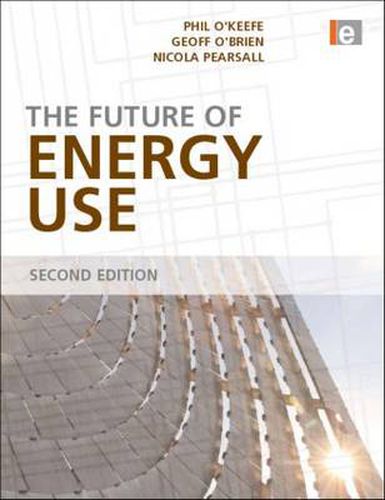Readings Newsletter
Become a Readings Member to make your shopping experience even easier.
Sign in or sign up for free!
You’re not far away from qualifying for FREE standard shipping within Australia
You’ve qualified for FREE standard shipping within Australia
The cart is loading…






Following the success of its predecessor, this second edition of The Future of Energy Use provides essential analysis of the use of different forms of energy and their environmental and social impacts. It examines conventional, nuclear and renewable sources and technologies, using relevant case studies and providing a vital link between technology and related policy issues. The new edition has been comprehensively developed and updated, including new text, diagrams and tables, with entire new sections that reflect the significant changes that have occurred since the first edition.
New material includes: a stronger focus on climate change policy and energy security; a discussion of the long run marginal costs of oil; coverage of the biofuels debate in both the developed and developing worlds; an outline of developments in the built environment (including transport issues); and the relationship between behaviour and energy use. It reviews policy shifts with relation to energy efficiency, carbon capture and storage, combined heat and power, and combined cycle gas turbines. There is new coverage of nuclear waste, storage and proliferation, and new material on microgeneration and biofuels, as well as essential new information on carbon markets and the hydrogen economy. The result is a unique introduction and guide to all the vital issues within energy for students, academics and professionals new to the field.
$9.00 standard shipping within Australia
FREE standard shipping within Australia for orders over $100.00
Express & International shipping calculated at checkout
Stock availability can be subject to change without notice. We recommend calling the shop or contacting our online team to check availability of low stock items. Please see our Shopping Online page for more details.
Following the success of its predecessor, this second edition of The Future of Energy Use provides essential analysis of the use of different forms of energy and their environmental and social impacts. It examines conventional, nuclear and renewable sources and technologies, using relevant case studies and providing a vital link between technology and related policy issues. The new edition has been comprehensively developed and updated, including new text, diagrams and tables, with entire new sections that reflect the significant changes that have occurred since the first edition.
New material includes: a stronger focus on climate change policy and energy security; a discussion of the long run marginal costs of oil; coverage of the biofuels debate in both the developed and developing worlds; an outline of developments in the built environment (including transport issues); and the relationship between behaviour and energy use. It reviews policy shifts with relation to energy efficiency, carbon capture and storage, combined heat and power, and combined cycle gas turbines. There is new coverage of nuclear waste, storage and proliferation, and new material on microgeneration and biofuels, as well as essential new information on carbon markets and the hydrogen economy. The result is a unique introduction and guide to all the vital issues within energy for students, academics and professionals new to the field.